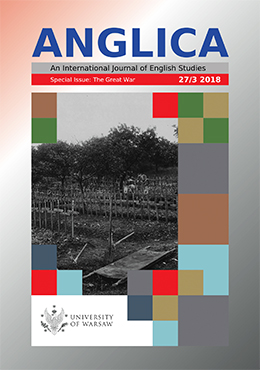“Like being trapped in a drum”: The Poetics of Resonance in Frances Itani’s Deafening
“Like being trapped in a drum”: The Poetics of Resonance in Frances Itani’s Deafening
Author(s): Rūta ŠlapkauskaitėSubject(s): Theoretical Linguistics, Applied Linguistics
Published by: Instytut Anglistyki Uniwersytetu Warszawskiego
Summary/Abstract: This paper considers how Frances Itani’s Deafening imaginatively rethinks our understanding of the Great War in the age of postmemory. Seeing as the novel is set in Canada and Europe during the First World War and takes as its protagonist a deaf woman, the poetic attention given to the senses as a horizon of phenomenological experience magnifies the moral bonds that the characters establish in defiance of both deafness and death. Guided by the theoretical reasoning of Marianne Hirsch, Elaine Scarry, and Alison Landsberg as well as contemporary phenomenological thinking, most significantly that of Edward S. Casey, Steven Connor, Michel Serres, and Jean-Luc Nancy, this paper examines how the novel’s attentiveness to the materiality of the body in regard to the ethical collisions of sound and silence as well as life and death contributes to a poetics of resonance that generates prosthetic memories, turning the anonymous record of war into a private experience of moral endurance inscribed on the ear of historical legacy.
Journal: ANGLICA - An International Journal of English Studies
- Issue Year: 27/2018
- Issue No: 3
- Page Range: 201-232
- Page Count: 32
- Language: English

